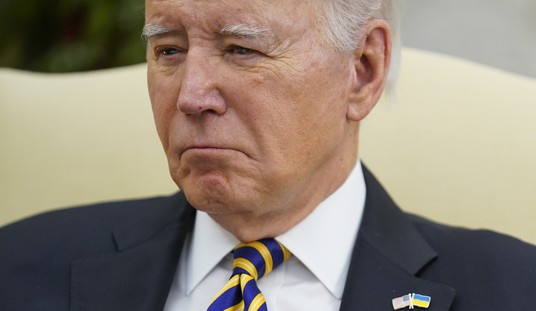Forget for a moment everything you think you know about fascism.
Forget Mussolini’s silly wars in Africa and Greece. Forget the horrible splendor of the Nuremburg rallies. Forget, if for only a moment, the Holocaust.
Instead, remember how fascism worked as a political system – not just the wartime atrocities we all know so well.
First off, there was only one Party. Whether it went by the name of Italy’s Fascists, or Germany’s National Socialist Worker’s Party, the Party ran the country, and the Duce, or Fuehrer, ran the Party. One man didn’t truly have complete control – there are always different factions to please, or cajole, or threaten, or play off one another – but his word was still the final one.
Businesses were seen as semi-private cogs in the government machine – useful for producing jobs, handing out tax dollars to favored individuals, earning kickbacks to favored politicians, and making the tools of war. Business was at once a means of getting and distributing money, and media businesses were useful and tolerated so long as they spewed propaganda, or at least hewed to the Party line.
Companies that weren’t useful didn’t get the juiciest government contracts, and they might just find they had serious labor issues coming up. Further recalcitrance could lead to more severe means of correction, best left to the imagination.
In other words, fascism was just like Communism (which worked a lot like the mafia). The only difference between the two as systems, was that Fascism kept the appearance of private property, but Communists went and nationalized everything outright. In neither system was business free to go about its business. In both systems, all labor unions (or just the one big union, with everyone required to join) reported to the State.
Business, labor, government – the three pillars of fascism, all combined in the Party to oppress the common man and enrich (and empower) those in favor.
All this historical trivia is what I’ve had in my head while reading Steven Den Beste’s last three essays. If you’ve already read his latest, then just skim this excerpt. The rest of you should read carefully:
Ordinarily during a boom, demand for products rises and businesses will then expand to increase their output so as to take advantage of the opportunity. But that doesn’t really happen in Europe.
In most of Europe now, if a business hires a lot of people during a boom, they are at serious risk of being stuck with a huge workforce during a bust that they can’t afford to pay and aren’t permitted to lay off. It’s theoretically possible to have mass layoffs but the procedure is slow and involved and can be halted by bureaucrats or employee lawsuits. So businesses which expand aggressively during boom times face a great risk of bankruptcy during the next downturn, whenever that might come. On the other hand, with taxes as high as they are most of the potential financial reward for that kind of growth is confiscated by the state. Companies which grow and hire and produce more revenue will pay a lot more taxes, but they won’t actually make a lot more profit.
There’s little to be gained by expanding and creating jobs but businesses which do so have a much higher chance of going bankrupt. And if they do expand and don’t end up bankrupt, there is little reward for doing so. Obviously with high risk and low reward, the rational play is to not take that chance.
So it’s hardly surprising that the businesses there are making hiring and investment decisions extremely cautiously, and are tuning their businesses to survive the next downturn, whenever that might be.
Steven was speaking strictly about why Europe, even (or especially) the enormous European Union, can’t compete economically or culturally with the US. What interests me, however, is the thinking, the system, which so completely intertwines government, business, and labor in Europe.
Even in this free-market, globalizing, end-of-history age we’re supposed to be living in, Europe is using a system so archaic, that it requires business and labor and government all to agree before a company can do something so simple as to lay off workers during a cyclical economic downturn. I’m not going to take the time to explain why that’s a bad idea – I’ll leave that up to Megan McArdle. Short version: economies that can’t adapt quickly to downturns are likely to stay in them longer, and suffer them more frequently. Harsh, but true.
The masters of the EU know all this. The people of Europe probably have a clue, too. Nevertheless, they continue on with a system that’s been fully discredited for more than half a century. Business still isn’t free to go about making money — it has to ask government for permission.
Why?
I call it “soft fascism.” Europe doesn’t have any concentration camps – but who needs those, when it’s just as easy to simply ban “offensive” speech, as France has done? Who needs to vest all power in one man, when one million men (bureaucrats, really) in Brussels can make the trains run on time? Who needs to wage war for resources, if you can buy off Middle East dictators for their oil? Who needs lebensraum when populations are declining? Who needs Joseph Goebbels, when you’ve got the BBC? Who needs a single political party, when all the many existing ones pretty much all agree that the way things have been done, is the way things should be done? (If there’s a difference between Germany’s Social Democrats or Christian Democrats worth more than a dozen regulations or five points off the income tax, I sure as hell don’t know what it is.)
And who needs to kill all the Jews anymore, when the job got done sixty years ago?
Europe – with a big push from Britain and the United States – got rid of the worst aspects of fascism: War, death camps, dictatorship. These things are now unknown in Western and most of Central Europe. Yet the economically sickly, culturally stagnant, and politically corrupt, collaborative three-way marriage between business, labor, and government goes on and on and on.
Sure, we got rid of the Nazis, and we got rid of Mussolini. But have we really gotten all the fascists out of Europe?
UPDATE: Andrew Duncalfe writes:
So when the EU suffers a melt down as per SDB’s scenario, do you agree that this soft fascism will turn hard?
I have some brief thoughts here.
That’s the thought which keeps me up at night. Or would, were it not for my precious.









Join the conversation as a VIP Member